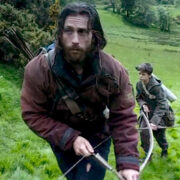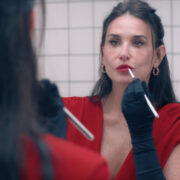WILD WILD COUNTRY Interview: Mark Duplass, Executive Producer
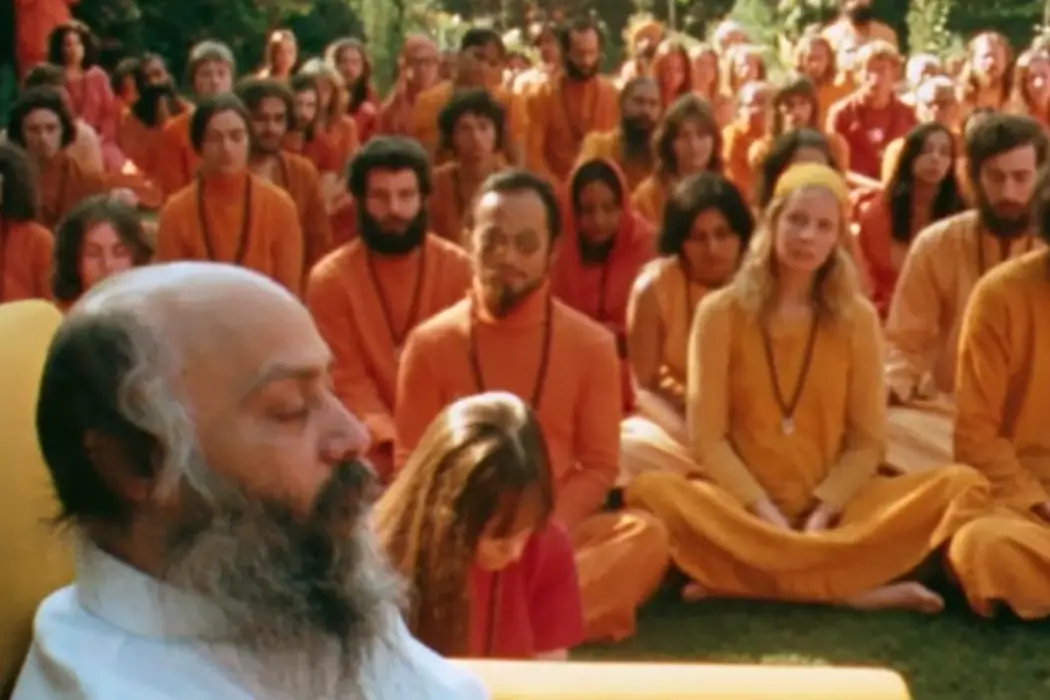
Kristy Strouse is the Owner/Editor in Chief of Film Inquiry,…
With the new Netflix release of the documentary Wild Wild Country, I was fortunate enough to speak with executive producer Mark Duplass, from Duplass Brother’s productions. This new documentary from directors Chapman and Maclain Way, offers insight into the Rajneeshpuram commune of the 1980s.
We discussed the films that shaped his admiration of movies, how his brother Jay and he work together and their plans going forward, plus what it was like to delve into such a hidden and bizarre piece of history.
Thank you for taking the time to speak with me today, I’ve been watching and admiring your work for a long time!
Mark Duplass: Thank you, I appreciate that.
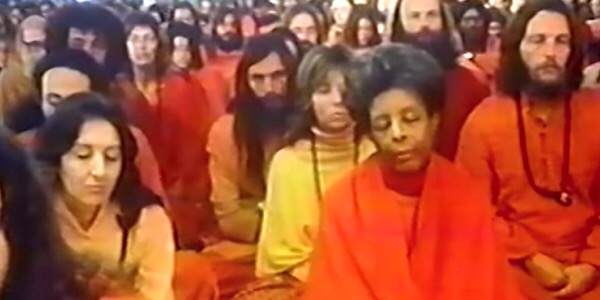
This documentary is quite a bit different from your usual productions, what made you choose this project?
Mark Duplass: Well, I’m a huge documentary fan. As a filmgoer it’s kind of like the primary thing that I’m drawn to, and it is also an inspiration for my own narrative filmmaking. I rely heavily on docs, and the principles and aesthetics. You know, of naturalism, and just these real stories that inspire me. A couple of years ago we produced our first documentary, Asperger’s Are Us, and I really enjoyed the process. And this one really kind of just fell into my lap because my good friend Josh Braun who sells a lot of my movies was hoping to produce this film. He was like “hey I’ve got this series from the guys who made a tiny little movie you might have not seen called Battered Bastards of Baseball on Netflix” and of course I had seen it, because I watch all the docs on Netflix, and I was a huge fan.
Then he started telling me about this story about this religious movement, and I couldn’t believe that I hadn’t heard of this story. You know, we all know the story of Jonestown, and the story of David Koresh, but somehow the Rajneeshees moving into a small town in Oregon and building a community from scratch, and essentially going to war with a small conservative Christian town next door – I hadn’t heard of it. My parents hadn’t heard of it. And I suppose that’s contributable to how media was back then in the ’80s, and maybe it was just kind of a local thing. So that really made me feel like this was a story worth telling. Not only for its parallels in our own political climate today, about people being afraid of others, and digging in their heels and not being able to compromise, but also just for the sheer historical storytelling of it.
So, you hadn’t heard of it at all?
Mark Duplass: Not at all, in fact when they first started telling me I was like “Oh yeah I remember Jonestown” and they were like “No, this is different. Everyone says that.” I was like, “Oh well… what is this?” And then they started showing me footage of fifty to a hundred-people showing up in red outfits in a town, and Rolls Royces rolling through and building a casino and printing their own money. It just never stopped being fascinating.
Yeah, it kind of floored me, I had never heard of any of it either. A lot of what happened doesn’t really seem real.
Mark Duplass: Yeah, it’s kind of wild.
So, what was your involvement in the making of the documentary?
Mark Duplass: My role varies as an executive producer. And a lot of it is what I would call, luck of the draw. You are inevitably taking a leap of faith whenever you jump into a project at an early stage. I had seen these guy’s first movie, and I knew they were good filmmakers, but this was a quantum leap for them as far as scope and undertaking. This is six and ½ hours of international storytelling that should ideally be at once a true crime story, but also an elevated cultural and historical study of church vs. state, of what makes a religion vs. what makes a cult. I wasn’t sure what I was in for, and I remember watching the first cut they had brought me after we had sort of plotted with what the general scope of the story would be. And I knew right away that they had all the goods. They made my job relatively easy.
Part of that is due to their inherent talent, but also the scope of the materials we were able to get. There is over 300 hours of archival news camera footage from the ’80s that the guys were able to get from a news station in Oregon. And normally this is stuff that is taped over, but the head of the news station decided that they would keep this footage because they knew it would be worth holding on to down the line.
So, we had the opportunity through that to just present the story and present their lives as it was on video tape, and not just recount it through some sort of third person subjective hearsay. And the guys are also good with people, and they slowly started contacting members of the Rajneeshee movement and those from the town of Antelope, and everyone was very reluctant to talk about the story at first. They were very burned by it, and there are a lot of emotions involved, but they slowly and surely gained their trust and let them tell their stories. So, you know, we were really blessed with having the right materials to tell the story.
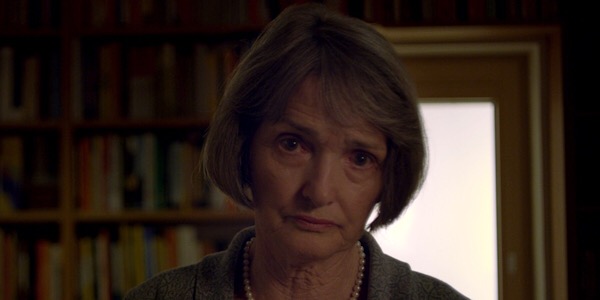
Yeah and over 300 hours of footage, I can imagine that was quite a feat.
Mark Duplass: Yeah, that was where they really slogged it out. They moved into our office spaces on the east side of LA, this big house that we work out of it, and it’s kind of a family environment where they kind of joined our family. Over the course of four years basically, they put this thing together. It really is a hand made grass project with the brothers and a few of their trusted collaborators.
Yes, this really seems like a family sort of collaboration, with all of the brothers involved.
Mark Duplass: Yeah, there are three sets of brothers. I thought that was interesting.
I did too. Obviously, you’ve been involved in the film business for a while, and in every facet: acting, writing, directing, producing. Were there any films that inspired you to get into this business?
Mark Duplass: Yeah, it came in stages for me. I was an HBO kid, where I was watching a lot of movies in the ’80s on HBO. Which were like the great films of the ’70s that they were showing. So, I got to see a lot of movies like Kramer vs Kramer, Ordinary People, and Sophie’s Choice. I saw these at a very young age and they had a deep effect on me. It got me more into adult themes. I wasn’t really a Star Wars kid, as much as I was into malaise and divorce, and that was formative for me.
And then in my teens, you know the infinite film movement of the ’90s, guys like Richard Linklater, were big for me. He wasn’t wearing a beret or was particularly eloquent. He was sort of an out of shape, ex-high school athlete in jeans and dirty Nikes, and he was a filmmaker. And that made me feel like maybe I could be one too. So, he was very seminal for me, and beyond that really, it was about being a fan of documentaries, realizing that I might have something to offer in narrative cinema if I try to bring in some of these principles that I love so much from documentaries. That was a big sort of confidence booster to me, that we might have something really unique to offer.
And how is it working with your brother? Within your production company?
Mark Duplass: That’s well… how much time do you have? [Laughs] I mean that’s a longer conversation. We actually just wrote a book about it, that’s over 300 pages and it still didn’t cover it. It’s as complex as you would think it is, and it takes many different shapes and forms. But at the end of the day, if I had to be reductive about it, I would say that it’s possible to make a great piece of art, and that you need people you know and love and trust to help you get there, and that’s kind of why we stay together.
That’s very well put, and I can imagine it’s a comfort to work with someone that you are really close to.
Mark Duplass: It is, it is that, and there are times when it is not. As you might imagine. [Laughs]
Yeah, siblings… my brother and I could probably not manage it, so kudos to you there!
Mark Duplass: It’s not dissimilar to a marriage really, like “I really love you, I want to get close to you, let’s join up, and now get the f*ck way from me. I need space. I need to breathe.” That rhythm is kind of how it works.
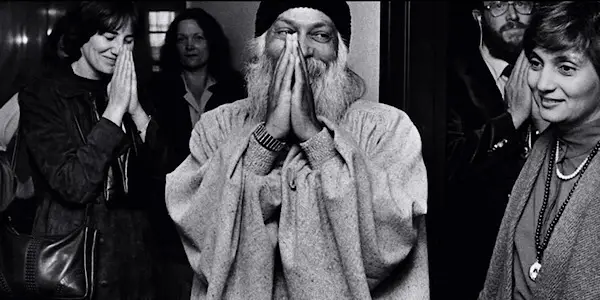
Right! Now, I know you have Duck Butter premiering at Tribeca this year (which I’m happily covering), but what else do you have coming up that you can tell us about?
Mark Duplass: Oh wonderful! Yeah, we have a bunch of cool things happening. We also have a film called Unlovable, starring a breakout star called Charlene DeGuzman who stars in the movie with John Hawkes and Melissa Leo that premiered at SXSW. And then we have Duck Butter, which is a Miguel Arteta movie that we produced that’ll come out at Tribeca. And obviously Wild Wild Country will be streaming on Netflix, which we are most excited to talk about, and our book comes out through Random House on May 8th that’s called Like Brothers.
That will be terrifying for me because it is something new that we haven’t done before. So, we will see what happens with that. And we just shot two seasons of our HBO show Room 104, so we will have a new season of that in the fall. Also, a new season of Animals, the animated show we make for HBO.
Awesome! Well I look forward to those. Before I let you go, back to Wild Wild Country – was there anything in particular that stuck out to you about the story?
Mark Duplass: Yeah, for those of you who have seen the trailer or already seen the episodes, ya know, I think the most striking thing to me was the way my feelings for Sheela, one of the main characters, changed so much throughout the episodes. I don’t want to give away too much, but it really tests your level of compassion and empathy. I think Chapman and Maclain did such a good job with her in particular, in presenting her as one of the more complex characters. In fact, we showed the entire series at Sundance, in one sitting, so people sat for six and ½ hours and watched it. And the feedback was so varied.
Some people had said “Oh, she’s such an interesting villain” And then some would say, “what are you talking about? She’s not a villain, she’s just trying to build her own movement, and she got backed into a corner and fought back. I would have done the same thing.” So, she’s a truly fascinating character, and in many ways she’s sort of like the Michael Corleone from The Godfather. She’s kind of witty, charming, sweet and unassuming, but put her in the right spot and she gets a little dangerous.
I can understand how she would divide people. She was very captivating. When I watched it I thought the same thing. She really goes through a journey, and they [Chapman and Maclain Way] do an excellent job of keeping things objective. I really enjoyed the documentary a lot, it’s six hours but it breezes by because it grabs you right away.
Mark Duplass: Well thank you so much for the support, you are one of our early interviews, and it is so fun to talk about. So, thanks for throwing your hat in!
We want to thank Mark Duplass for taking the time to speak with us.
Wild Wild Country is currently streaming on Netflix.
Does content like this matter to you?
Become a Member and support film journalism. Unlock access to all of Film Inquiry`s great articles. Join a community of like-minded readers who are passionate about cinema - get access to our private members Network, give back to independent filmmakers, and more.
Kristy Strouse is the Owner/Editor in Chief of Film Inquiry, writer, podcaster, and all around film and TV fanatic. She's also VP of Genomic Operations at Katch Data and is a member of The Online Association of Female Film Critics and The Hollywood Creative Alliance. She also has a horror website: Wonderfully Weird & Horrifying.









